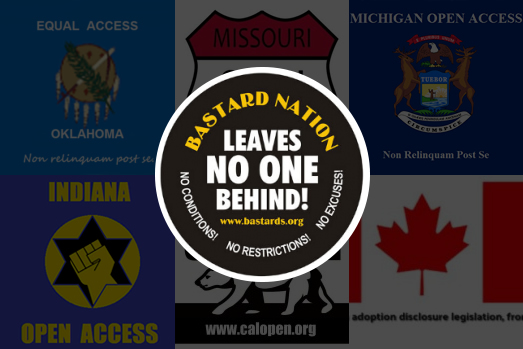TO: Advisor, Committee, and Observers
FROM: Marley Greiner, Executive Chair, Bastard Nation
DATE: November 12, 2020
RE: Submitted Comments on proposed draft language of The Unregulated Transfers of Adopted Children Act – November 12, 2020 discussion
Bastard Nation: the Adoptee Rights Organization is the largest adoptee civil rights organization in the United States. Below are our comments regarding the proposed Unregulated Transfers of Adopted Child Act based on the online discussion held on November 11, 2020.
First, thanks for all the hard work you are putting into this discussion and draft. It’s a complicated issue, and I appreciate the seriousness with which re-homing is taken here
I attended yesterday’s Zoom meeting, but was unable to speak. Further research shows that although Zoom said I was unmuted, my browser was blocking use of the mic!
Below are my thoughts and concerns about yesterday’s session, most of which I intended to bring up in person.
Scope of draft: The the reason, I believe that some of us—especially observers—got into the ULC discussion is because the original draft was focused on the unregulated re-homing of international adoptees. Over the course of the last few months, there has been much discussion on broadening the scope to include the re-homing of all children and related issues. While I understand that concern, there are too many legal, cultural, and social dynamics involved in that broader scope to take up at this time.
The focus should remain narrow but should include domestic adoptees who are also subject to re-homing whether their adoptions are facilitated through a child placement agency, private attorney, or the state. It is important to remember that unregulated re-homing is not a benevolent act, It is a way for adoptive parents, without public or legal scrutiny, to abandon the legal and moral commitment they took on for a child not their own when they adopted. Re-homing should be a last resort, rare, and regulated by law.1
Domestic and international adoptee rights organizations in the US are engaged in joint work to protect the rights of all adopted folks—children and adults. To limit this draft bill to international adoptees serves neither group.
Intent: This may be a moot point by now, but the intent of adoptive parents to sever parental rights to their adopted child must be clear. The draft should not concern itself with informal and/or temporary custody transfers (examples: family illness, imprisonment, educational opportunities). Legal responsibility in those cases, however, should obviously be laid out either by state laws or other legal mechanisms to protect the child, the parent, and the caregiver. The final draft should reflect this.
Exclusion: I agree with proposals to exclude kin and fictive kin transfer of custody from the draft. (See “intent” above)
Different treatment of adoptees: Yesterday’s discussion regarding the broadening of the draft to include all children included an argument that adopted children, once an adoption is finalized, are treated legally the same as the not-adopted, Carving out adoptees in this draft, it was argued, could be problematic. I absolutely disagree with this. The truth is, adopted people in the US are subject to specific laws that negatively affect their rights.
US are adoptees are not”as-ifs “We are treated differently under law our entire lives. In 9-10 states (depending on how one views Hawaii law) unlike the Not Adopted, adopted adults are barred—or at best limited by strict conditions–from accessing their own original birth certificates. They cannot access their own court records pertaining to their adoption. In some states, adoptees have been denied inheritance rights since they are not the “natural children” of the deceased. Adult international adoptees whose adoptions were finalized before February 27 1983 and whose adoptive parents, adoption agencies, or government agencies did not follow-through on citizenship, were excluded from the Child Citizenship Act of 2000. Now, up to 35,000 adult adoptees who believed their entire lives that they are US citizens, are subject to deportation at the whim of the state for reasons ranging from criminal acts to filing for Social Security benefits.
In conclusion, the final ULC draft should be limited to domestic and international adoptee re-homing. In my opinion, this would be much easier to pass than some broad-based coverage that could not only compromise various state laws but infringe on long-held intra-family practices. All adoptees deserve protection.




